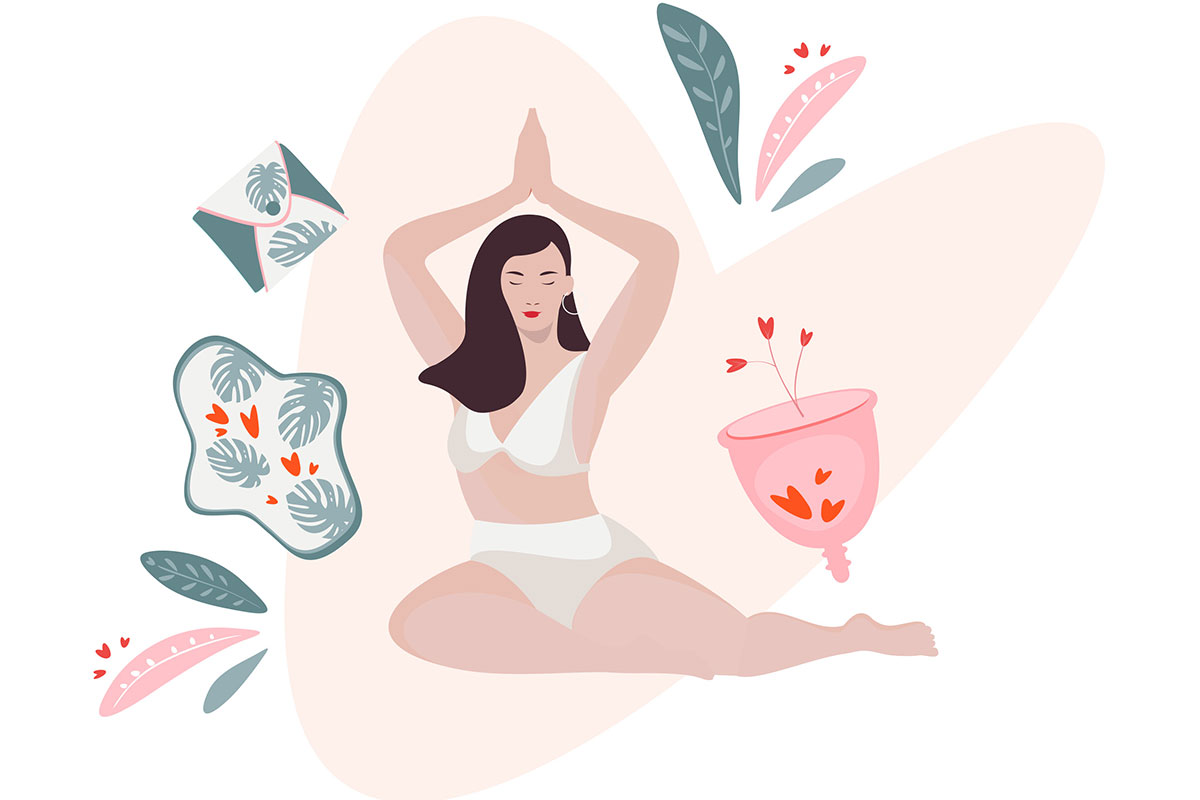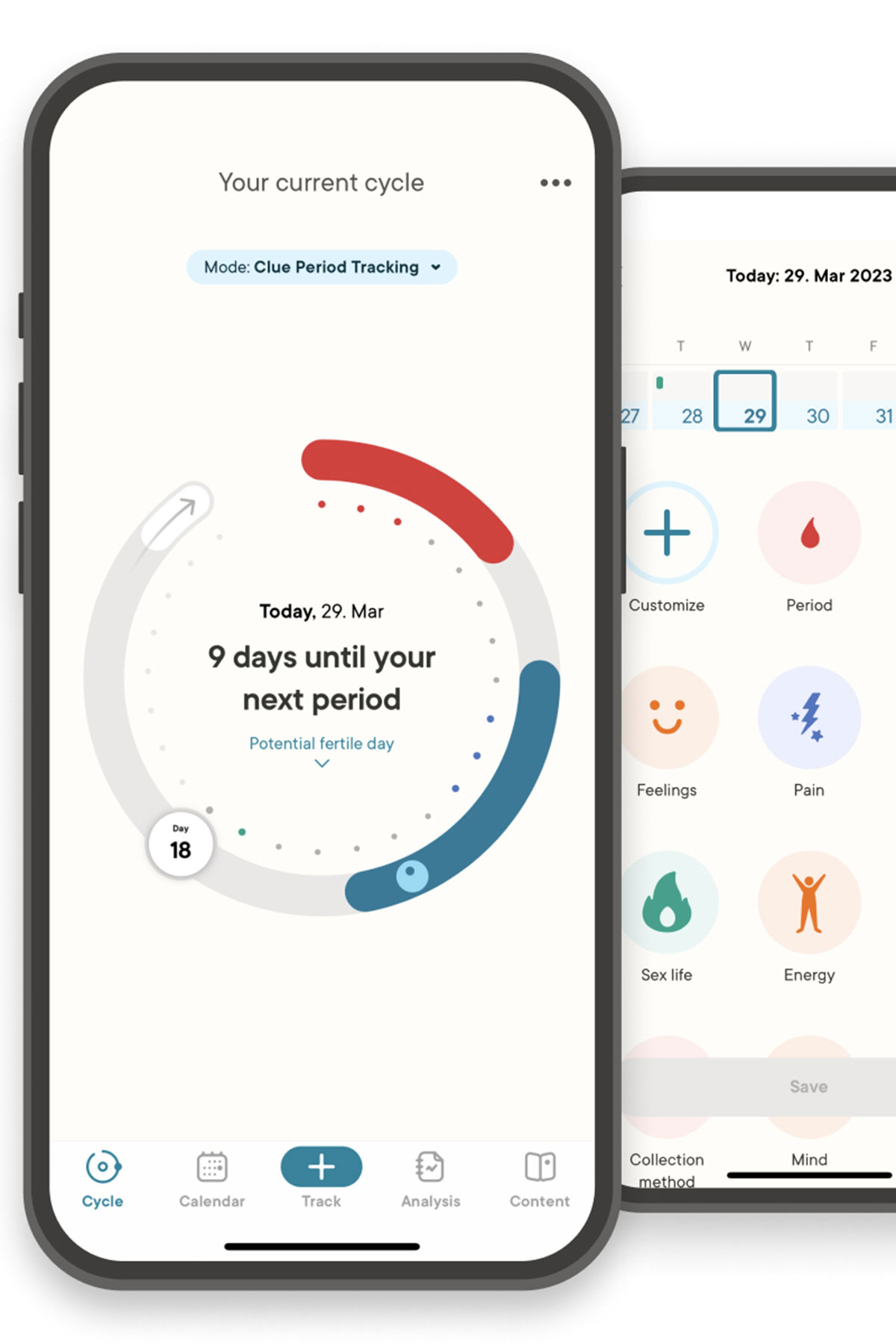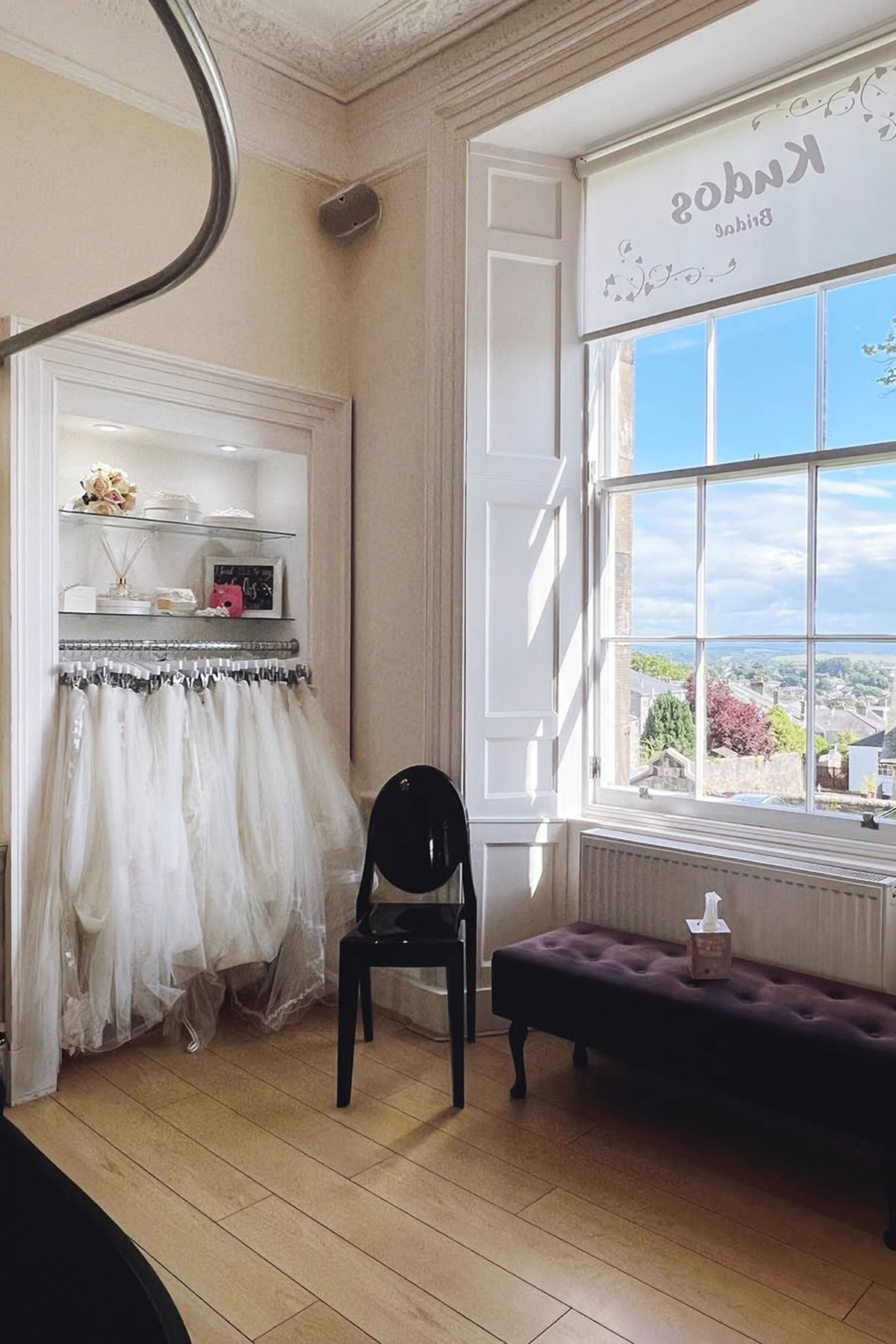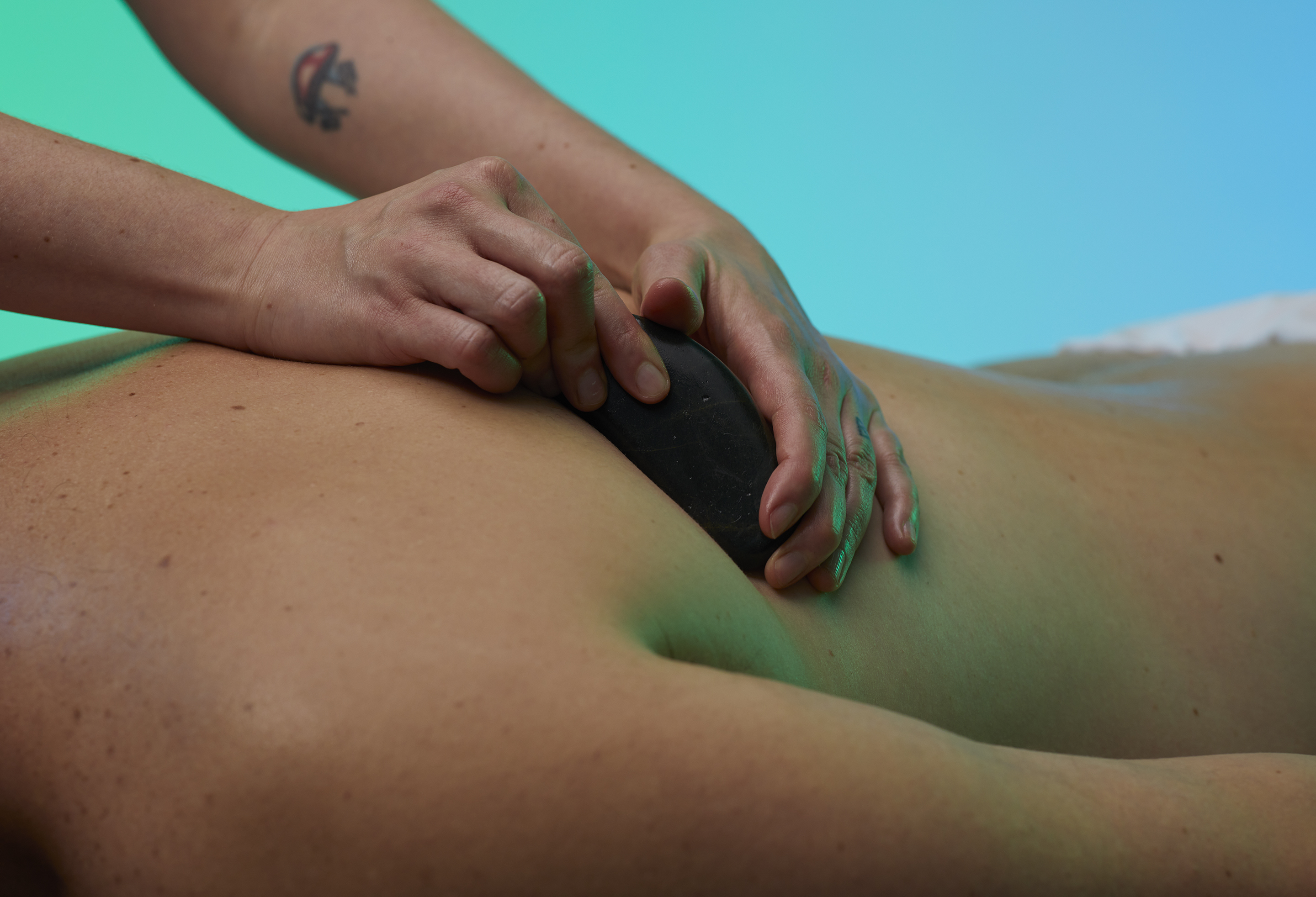Freaking out about Aunt Flo crashing your wedding without so much as an RSVP? We chat to the experts for their advice and top period planning tips to help you stay confident and stress-free no matter what

Illustration: Shutterstock
What to expect on your wedding day: managing the unpredictable
For every wedding detail that can be planned to perfection, there are aspects of your day that will inevitably be a little harder to predict: the weather, what your tipsy guests get up to, and, in some cases, whether or not your period will make a surprise appearance.
Even if you could normally set a watch by your cycle, the stress and excitement of wedding planning can knock things off course somewhat.
But don’t sweat it. With a little prep and some clever planning, you can handle whatever comes your way and make sure getting hitched really does go off without a hitch.
The menstrual cycle breakdown: follicular vs. luteal phases
Get to know your body
No idea what your luteal phase is or how to tell if you’re ovulating? You’re not alone.
An estimated one in four women in the UK aged between 16-39 don’t understand their menstrual cycle, so we asked Dr. Mahshid Nickkho-Amiry, consultant gynaecologist and fertility specialist at The Alexandra Hospital near Manchester (part of Circle Health Group), to clear a few things up.
She explains that the menstrual cycle is divided into two main phases: the follicular phase, which lasts from the first day of your period until ovulation, and the luteal phase, which is from ovulation until the start of your next period.
How hormonal phases can affect your wedding day mood
“If your wedding coincides with the luteal phase or menstruation, you might find that pre-existing symptoms such as anxiety, irritability, or fatigue are heightened,” she says.
“On the other hand, if your wedding coincides with the follicular phase, you’re likely to feel more energised and emotionally balanced.”
Of course, not everyone will experience the same symptoms at the same time, so it helps to understand which physical and emotional symptoms you’re most likely to experience throughout the month.

Rhiannon White, chief product officer at period tracking app Clue, encourages brides-to-be to start monitoring their cycles as early as possible in order to gain a deeper insight into how hormonal fluctuations impact their bodies
The importance of tracking your cycle
Rhiannon White, chief product officer at period tracking app Clue, encourages brides-to-be to start monitoring their cycles as early as possible in order to gain a deeper insight into how hormonal fluctuations impact their bodies.
“Knowing what’s cycle-related and what isn’t when it comes to your emotions and mental state can help you feel more in control – and give you a chance to pre-empt and manage the fluctuations,” she advises.
“We recommend tracking both mental and physical symptoms throughout your cycle to learn your unique patterns so that you can validate and manage them. The more you track, the more you’ll know.”
When it's not possible to plan around your period
Selecting your wedding date
For many couples, a wedding date is set more than a year in advance, meaning you very likely won’t be able to accurately select a date around your luteal phase or period. But that doesn’t mean your only option is to brace yourself for the day.
Hormonal options for adjusting your cycle
“Hormonal medications like Norethisterone can be prescribed to delay your period,” explains Dr. Nickkho-Amiry. “Or if you’re on birth control pills, you might be able to skip the placebo week to postpone your period.
"But it’s crucial to consult with your GP well in advance to determine the best and safest option for you. Altering your cycle can sometimes cause side effects like breakthrough bleeding, nausea, or mood changes.”

"We're a shop full of women so we always ensure our brides are made to feel comfortable," Kudos Bridal Dunfermline manager Megan Carberry says. "Shopping on your period is a vulnerable experience but we're here to help – from giving a bride a break where she needs it to grabbing a glass of water or cup of tea, we're here to make everyone feel as at ease as possible!"
Planning bathroom breaks with your bridesmaids
Plan, prep, and protect
If banning Aunt Flo from attending isn’t for you then Megan Carberry, manager of Kudos Bridal Dunfermline, has some practical advice on how to prepare.
“Schedule time for bathroom breaks – before you leave the house, before your photos, during cocktail hour... having a plan in place with your bridesmaids will help you feel more relaxed and less rushed,” she says.
“Stock your venue’s bathroom(s) with anything you may need – knowing that you have pads, wipes and pain relief on hand will make your day go much smoother.”
Doubling up on protection: menstrual cups, period underwear and more
Obviously, a white dress and menstrual blood aren’t exactly a match made in heaven, so consider doubling up on protection products to prevent any leaks.
Rhiannon from Clue suggests using a menstrual cup, which you could pair with period underwear for added security.
“A benefit of using a menstrual cup is that it can be inserted at the beginning of the day and left in for up to 12 hours – a great option when you’re in a big wedding dress,” she says.
“If your flow is light, absorbent period underwear is another all-day coverage option – also great for an added layer of protection.”
How to avoid mishaps with your wedding dress during your period
Normally Kudos Bridal's Megan would recommend using the loo backwards to avoid damaging your train, but if you’re on your period, she recommends removing your gown entirely instead.
“This way, you know for sure that you’re avoiding any mishaps with your dress, can get yourself properly cleaned up without worrying about your gown and your bridesmaids are on hand to help you re-dress afterwards,” she says.
Your menstrual cycle: a key indicator of your overall health
At the end of the day, reminds Rhiannon, “Your cycle is a direct indicator of your overall health and your body’s way of telling you things are working as they should.” Don’t be afraid to speak up if something is causing concern or discomfort – on the big day and beyond.
How can I beat bloating on my wedding day?
“Focus on maintaining a healthy diet in the days leading up to your wedding.
"Avoid salty and processed foods, and instead, choose hydrating fruits and vegetables.
"Staying well-hydrated can also help reduce bloating,” says Dr Nickkho-Amiry.
Megan Carberry says: “We will often suggest styles with more detail or floatier skirts that may help disguise problem areas and make the bride feel more relaxed.
"If all else fails, a good pair of Spanx and drinking lots of water are lifesavers!”
If worrying about getting your period isn't the only thing keeping you up at night, we share 11 tips to overcome pre-wedding anxiety




